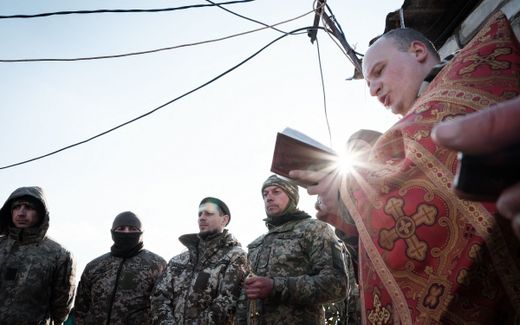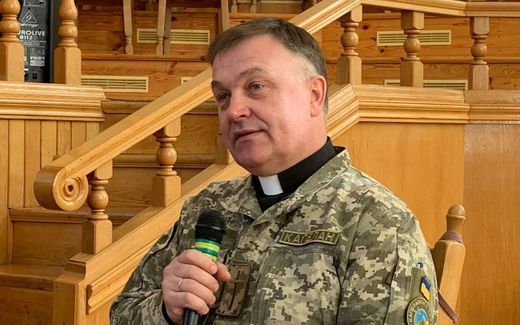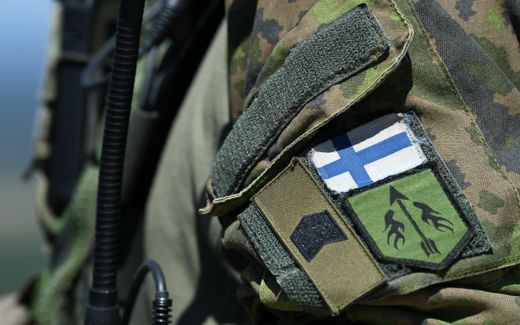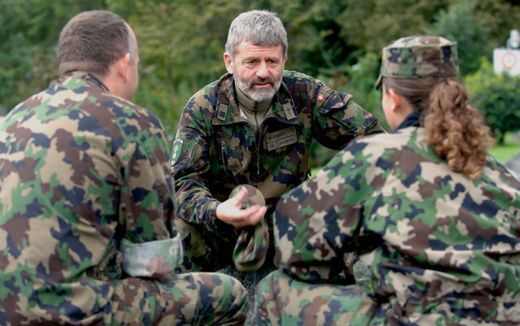Chaplain fights to keep soldiers humane despite horrors at the front
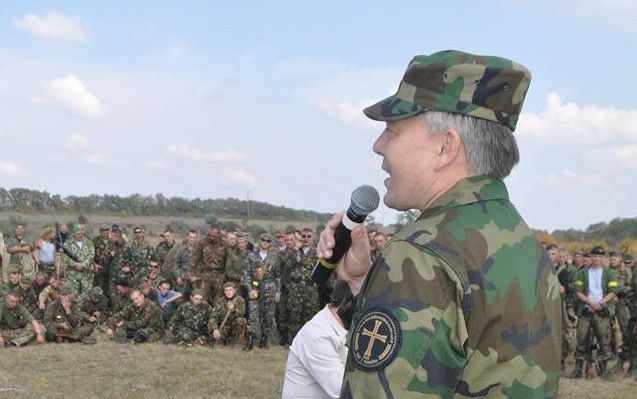
Valeriy Alymov with the military in the fields of Luhansk region. Photo Valeriy Alymov
Eastern Europe
A chaplain is a person who takes care of the souls of the military. Ukrainian pastor Valery Alymov is one of them. "They are people, so they should not lose their understanding of themselves as a person or the feeling of kindness and love for their neighbours. They must return as parents, as husbands to their homes, as people with a human relationship with others."
Alymov heard stories from soldiers who were heavily fired upon and had no chance of surviving. They prayed the prayers, he taught them as a chaplain, and they survived because God saved them. Then the chaplain knows that his work at the front is being blessed, he says in an interview with inVictory.
Voluntary
The pastor of the Kyiv church "Tabernacle of the Living God", who also serves as a voluntary chaplain at the front, has been involved with the army for almost his whole life. As a child, he played with pistols, machine guns and sabres. After graduating from military school, he officially entered the Ukrainian defence forces and almost automatically took the responsibilities of a chaplain.
A chaplain is a person who takes care of the souls of the military. Ukrainian pastor Valery Alymov is one of them. "They are people, so they should not lose their understanding of themselves as a person or the feeling of kindness and love for their neighbours. They must return as parents, as husbands to their homes, as people with a human relationship with others."---Photo InVictory---
"From the first officer years in the early 90s, when I served in the army, I always preached the gospel. Therefore, it is not true that I became a chaplain in 2014 when hostilities began in the East of Ukraine. During the service, I performed my immediate tasks. At the same time, I was a counsellor for soldiers and officers. Also, I explained what is written in the Bible and how to act correctly in life. I did not know that this job was essentially a chaplaincy at the time, but I acted like that from my first officer years."
Fired
Even when he was fired from the army because of downsizing and became the pastor of the church in Kyiv, Alymov did not leave the military entirely. Instead, he was a pastor during the church services and a chaplain in the remaining time, he says to inVictory.
The hostilities in Crimea in 2014 laid the more solid foundation for chaplaincy within the Ukrainian army, Alymov explains. Even though the Ukrainian authorities found the idea almost ridiculous before that time, the pastor helped in the creation of an association of Christian military personnel.
At the time, the condition of the Ukrainian army was poor. The soldiers lacked supplies and often also the will to fight. "There were a lot of controversial issues with which it was necessary to work with the personnel", Alymov says. "This is how the real chaplain work was born. It is still needed eight years later."
According to the chaplain, pastoral care for soldiers has gained more professionality. However, the need for more chaplains is still there.
Relationships
His years in the military help him to build relationships with the military. "We build friendly relations before we look for opportunities to communicate with the personnel closer", he explains.
Yet, it is not always easy to win soldiers' trust, Alymov experiences. Especially people who repeatedly have to deal with hostilities find it hard to talk. "This is a state of inner pain that they used to hide", the pastor says.
Temporary
Many military men are not focused on opening up to a psychologist and only want to drive the enemy out of their country. They understand that life is temporary and that if they die, they will die with their pain, the chaplain notices. "Many Ukrainian guys are in pain because they see and hear about the death of their brothers daily. Their pain is their motivation for revenge", he points out.
Some signs of depression are excessive drinking of alcohol, despondence, withdrawal and lack of communication. Alcohol abuse is a sign that a person cannot cope anymore, says the pastor. Therefore, the first red flag Alymov notices is when a person loses an adequate attitude to life and does not see any meaning to it anymore.
A deteriorating mental state can be dangerous, both for soldiers and their surroundings. It can change their motivation to defend their country from duty to hatred, anger and sadism. Therefore, the pastor focuses primarily on working on moral support and building their faith in God. "They are people, so they should not lose their understanding of themselves as a person, or the feeling of kindness, love for their neighbours. They must return as parents, as husbands when they go home."
Commandment
Chaplain Alymov is convinced that bearing arms does not violate the commandment "Thou shalt not kill." He points out that there is a difference between a civilian taking a weapon to rob a store and military and police forces using arms to "take revenge on those who commit lawlessness or to protect their home." Alymov bases this view on several Bible texts, among which Romans 13,4 that reads that "the warrior is the servant of God, he is for your good." Furthermore, he argues that the Bible does not call for disarmament. "There is no such concept. The only thing God asks soldiers is not to use weapons to harm others intentionally, having a negative motivation in the heart; revenge, killing for the sake of killing. If the motivation why a person took up arms is righteous, God does not consider this a sin that He will not forgive."
Related Articles


